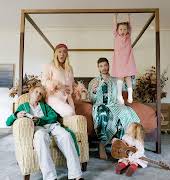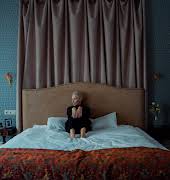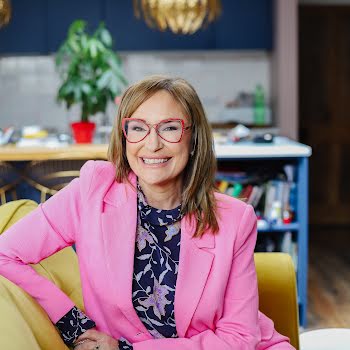
By Amanda Cassidy
09th Aug 2020
09th Aug 2020
Amanda Cassidy sat down with one mother to talk about her chronic illness and how she manages to coordinate family and career at the same time.
“You don’t look sick.” This is probably the most annoying statement I’ve heard during my experience of living with a chronic condition and invisible illness. To be fair, I don’t necessarily look sick, but I don’t look like me either. For eight years I have been living with a serious condition, but to the world, I don’t look sick; no visible signs that something is wrong.
My life looks pretty good to those looking in: I have a successful career, holding a global role with a multinational financial services company. I have a lovely and supportive family and two children. But I also carry a secret and it makes me different. People don’t see how my condition impacts me every day, the planning and organising I have to apply to everyday life to make sure I get through it.
They can’t understand what they can’t see.
An invisible illness
This condition has changed not only my life but that of my loved ones. How I approach both my home and work life has had to evolve so that I can have the best experience for me and my family.
I am lucky in many ways, I have an amazing support structure in my husband, parents, siblings and even my children who help me every day. However, I have missed opportunities and I have lost friends, grown distant from others. Having an invisible illness looks like someone having lots of excuses to cancel.
Believe me, I wish I could go to every social event, but I have to plan ahead and take each day as it comes.
This was tiredness on a new level
I had always been full of energy and bubbly, loved socialising and being out with family and friends. But over the course of a year, I had turned into someone with no energy or desire to do anything; not what my husband had married and very confusing for my children.
Weekends became sleeping all day and night and constantly fighting the feeling of pure exhaustion. This was tiredness on a new level — I had zero energy, and it pained me to move or talk. This phase lasted about eight months, and then I began to feel a bit more normal. Sleep and rest were and are still a big part of my life but finally, I could manage to get through the day without needing to be asleep by 7 pm.
After dealing with the news, and talking with my husband and family, I felt in a good place until I thought of work and I was worried on how this would be received by those outside of my inner circle. What will people think? What will my colleagues and managers think and how will this impact my career?
Before my admission to hospital, I had hidden it all so well, playing it off as a bad viral infection. I certainly didn’t mention chronic autoimmune condition. I was afraid — afraid of the stigma and what might happen to my career plans.
Related: ‘Teachers were cruel, doctors were worse. They told me just to get on with it’
The juggle
Obviously my colleagues knew I was unwell and I needed to take an additional six weeks off to focus on recovering. I was fortunate to have a very supportive and understanding manager whose main concern was for me to get better.
I was able to work from home one day of the week (this was pre-COVID-19) and I took one day for medical leave to sleep – I would sleep for 20 hours during the first few months on my Wednesdays off to re-energise. My condition and medication zapped my energy further; I needed to sleep at every opportunity. Slowly I began to come out of the slumber state, thanks to steroids, but with this change, came another challenge: weight gain.
While I don’t look sick, I don’t look like me either. Not to be vain, but it’s tough to look in the mirror and not recognise the face and body in the reflection. If I am honest, this has been one of the hardest aspects to deal with. I just don’t feel or look like me, even eight years on.
This will not define me
Turns out I am quite resilient (or stubborn some might say) and I decided that this illness was not going to define me. I am a firm believer in positive mental attitude and its ability to help you get through what life may throw. After trying multiple treatments, steroids are my necessary evil. They have helped manage my condition so that I can have a somewhat normal life.
After 11 years with my company, I decided to take a new role with a new company in 2017, a crazy decision in many ways. I was taking away my comfort blanket. The decision was simple in one way; I wouldn’t pass up this opportunity if I didn’t have an auto-immune condition, and so I certainly wasn’t going to let it affect my career choices now.
Only a few people know of my condition in my new company and I’ll most likely keep it that way for now. It’s a matter of trust. Selfishly, I need some people to know as I have good days but obviously bad days too.
I have found strength and resourcefulness I didn’t know was there
I wear a mask to work every day. Smiling on the outside, confident in my abilities to perform well but underneath it all, I am usually fighting to maintain a sense of normality.
From a work perspective, I always give 100% but sometimes I need a time out. I have become a master planner and an efficient user of time. I have found strength and resourcefulness I didn’t know was there.
I calculate value and cost-benefit for everything I do, for my time, energy, and my deliverables. To date it has worked 90% of the time — again, I’m lucky I can manage my career with the flexibility and support of working with a company that really focuses on their people.
The support network of my husband, family and close friends has made this journey so much easier for me. I am lucky and they help me navigate this journey every day in little ways.
I am eternally grateful for their support and understanding. The most important thing I can say to others living with a chronic illness would be, you are stronger than you think. Talk to your family and friends and, more importantly, let them help you.
We all need support and help in this life, some just a little more.
Related: Hidden Illness: ‘My pain fell of deaf ears’























